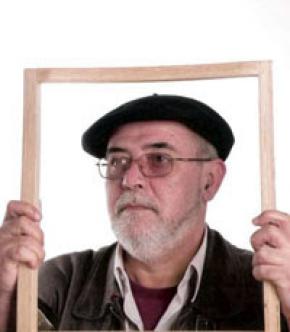Luís Carlos Patraquim, poet, journalist, literary critic and cinema screenwriter, was born in 1953 in Lourenço Marques, where he attended the primary and the secondary school. At the age of 16, he started to collaborate in the youth column of the newspaper Notícias and later he worked with the magazine A Voz de Moçambique. In 1973, Patraquim moved to Sweden where he was granted the status of political refugee. He returned to Mozambique in the beginning of 1975, where he started to work for the newspaper A Tribuna. In the field of cinema, he participated in the creation of National Institute of Cinema and was editor of the newsreel project Kuxa Kanema. In 1980, he joined the staff of the Agency of Information of Mozambique. In the same year, he published his first volume of poems, Monção (Monsoon). Since then, he published A Inadiável Viagem (The Undelayable Journey, 1985), Vinte e tal novas formulações e uma elegia carnívora (Twenty and So Formulations and a Carnivorous Elegy, 1992), Lidemburgo Blues (Blues of Lidemburg, 1997), O osso côncavo e outros poemas (The Concave Bone and Other Poems, 2004), until the most recent Pneuma (2009). In 1986, Patraquim left Mozambique and moved to Portugal where he collaborated with newspapers and magazines, as well as participated in television and radio programmes. In 1995 he was awarded Prémio Nacional de Poesia (National Poetry Prize) by AEMO. Since 2000 he has dedicated himself to playwriting and he has recently published his first novella A Canção de Zefanias Sforza (The Song of Zefanias Sforza, 2011) and two volumes of chronicles, Ímpia Scripta (2011) and Manual para incendiários (Arsonists' Handbook, 2012).

The Nation by Luís Carlos Patraquim:
"[…] for me independence is objectively a political fact that is more than obvious, and it is an unquestionable fact. Now, there can only be independence, there can only be a reason for independence – never mind the break that it was necessary to make with the logic of colonialism by turning to the armed struggle, for there was no other alternative, given the other side’s intransigence – but, once that is achieved, it’s necessary to understand the great river that had flowed before, the river that was already there. There were times when things became a bit reductionist; I think they all had to lose something in order to become something else, in order to start being something else, or because they thought they would become something else. Because at the time it wasn’t clearly understood that some of those components would not be an affront to the project of a Mozambicanness that implied a co-existence, a grammar that could come to be created and was being created, and is still being created today, which shows how much more difficult it would have been at the time. The invention of this project is still ongoing. For me, this invention goes on…"



